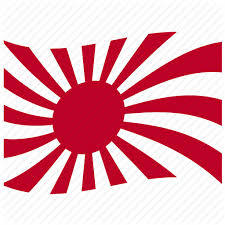Japan has revived its Hard-Line Doctrine For National Security And Change 9th Article In Constitution, Which Renounces Japanese Militarizati...

The report frequently emphasized that China and North Korea threatened regional peace in the Pacific, therefore the Japanese army should be brought to a level in which it can respond to such threats. Japan and China had tension recently because of both countries' sovereignity claims on a chain of islands, known as Senaku in Japan, and Diaoyu in China, which is a "new global flashpoint". Japanese Prime Minister Shinzo Abe is said to follow hard-line security policies that devoting more budget to national security, and declared his willingness to change 9th article in Japanese constitution, which renounces “war as a sovereign right of the nation protection.
Re-Arming the Military
Abe's agenda has taken shape in a number of ways. In August, his minister of defense submitted a historic budget request that violates a decades-old unwritten principle. The principle is for Japan's defense budget to never be larger than 1 percent of GDP. This principle was part of the commitment made after WWII to forever renounce military aggression.

Japan’s Cabinet Approved The Country’s Largest Defence Budget Including Plans To Buy Surveillance Aircraft, Drones And F-35 Fighter Jets.
Abe's agenda has taken shape in a number of ways. In August, his minister of defense submitted a historic budget request that violates a decades-old unwritten principle. The principle is for Japan's defense budget to never be larger than 1 percent of GDP. This principle was part of the commitment made after WWII to forever renounce military aggression.
The new budget requested is whopping about 5,255 billion yen (US$48.1 billion) for military spending which is just closer to 2.5 percent of Japan's GDP in 2018 fiscal year. The request includes new land-based missile defense systems to monitor space and provide auto-warnings for missile launches. This technology would assist in detecting potential missile launches from North Korea, that could theoretically intercept them.
In September, the Japanese Navy launched the ship "Myoko" that will patrol the Japan Sea between Japan and Korea. It will guard against potential missile fires by North Korea with anti-missile defense capabilities, identical to those of the US Navy. At the launch, Abe said that the "increasingly severe security environment" posed by North Korea and China must be "squarely faced" by Japan. He referred to the environment awaiting the Myoko's crew as a "raging sea."
Many in Japan anticipate the role of Japan's military will soon change to respond to North Korea. Increasing military spending in the budget now may lead to future increases and spending on more offensive weapons. For example, two years ago, Japan and the US renegotiated their security alliance. Japan agreed to come to the aid of its most important ally if the US or one of its allies were to come under attack. A discussion on changing the Japanese Constitution's WWII prohibition of aggression is likely to be revived.
Destabilizing the Region
 The requested increase in military spending in August had an immediate effect on the region and possibilities for peaceful relations. A spokesperson for China's Ministry of Foreign Affairs noted China's concern over the new plan and accused Japan of inflating the threat posed by China in order to take a more offensive stance in Asia. The relationship between China and Japan is already tense.
The requested increase in military spending in August had an immediate effect on the region and possibilities for peaceful relations. A spokesperson for China's Ministry of Foreign Affairs noted China's concern over the new plan and accused Japan of inflating the threat posed by China in order to take a more offensive stance in Asia. The relationship between China and Japan is already tense. The two nations are engaged in a dispute over the Senkaku/ Diaoyutai islands in the East China Sea.
This disagreement flared up last summer when China stepped up military activity near the islands. Then in February, President Trump reaffirmed the US commitment to come to Japan's aid with conventional and nuclear weapons in a statement signed by both leaders.
Abe's victory confirms that Japanese people take these threats seriously. Their fears may play into a developing brinksmanship between Japan and North Korea that could, in my opinion, implicate the United States.
Trump will visit Asia in November, and his stay in Japan includes a visit with Japanese who were abducted by North Korea during the 1970s and '80s. Doing so may open old wounds with North Korea the stories of abduction provoke strong feelings for the Japanese people who will be reminded of North Korea's past offenses. Prospects for peaceful resolution with North Korea are becoming more slim, therefore strengthening Abe's case for building Japan's offensive capabilities is inevitable alternative.
Tagged Emblem

Tagged Emblem
.jpg)

.jpg)




